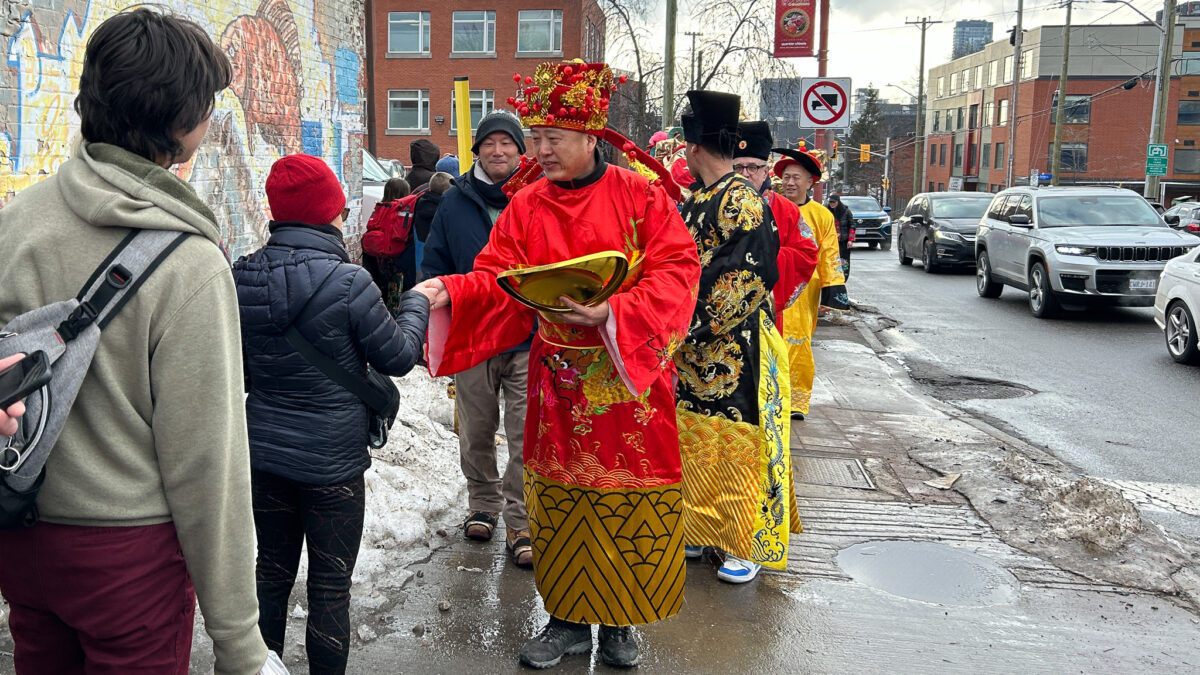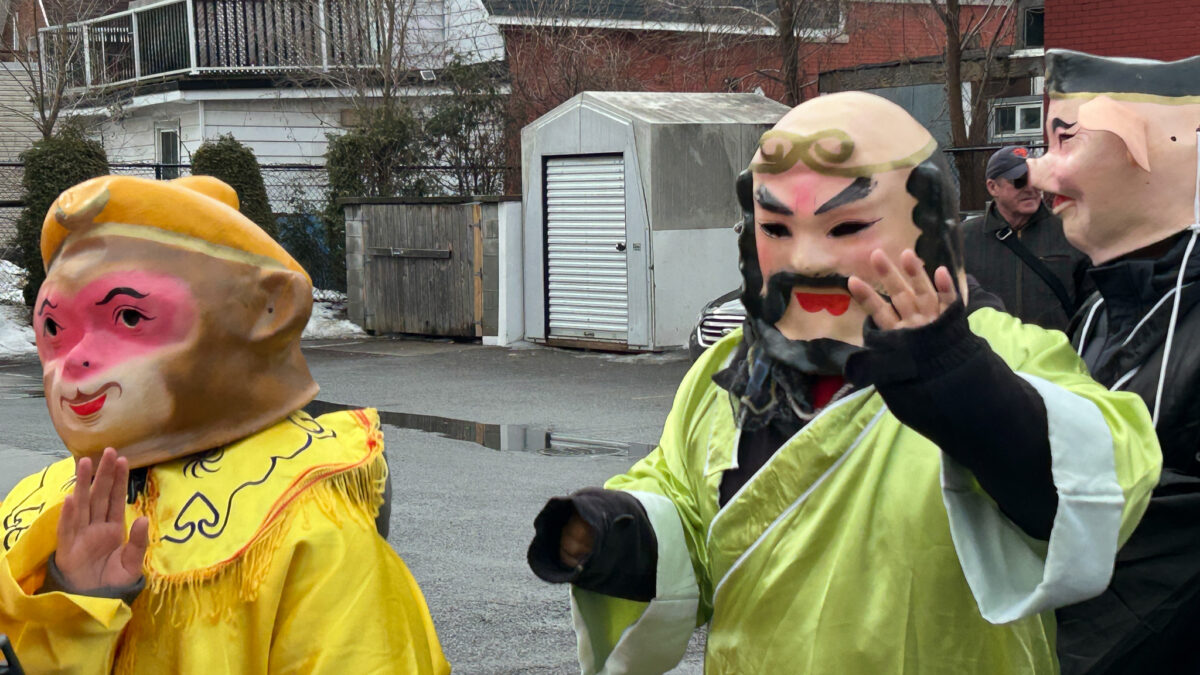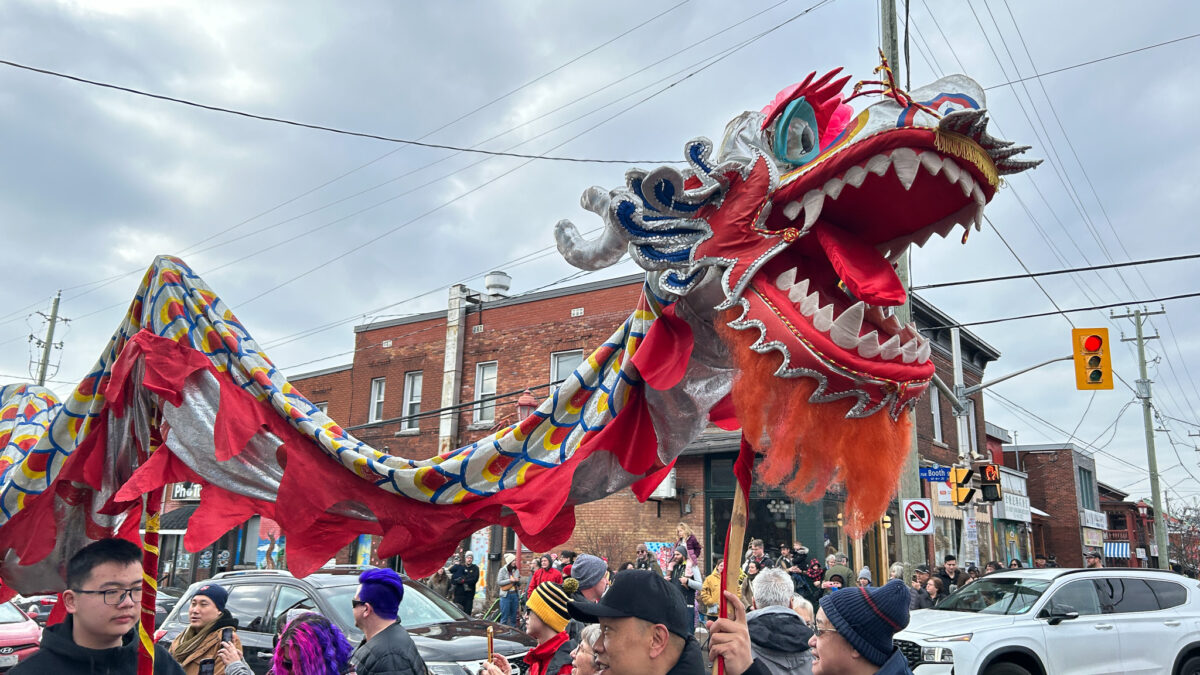Ottawa’s Chinatown rang in the Year of the Dragon recently with an exuberant parade sprawling down Somerset Street — the first such event since the end of the COVID-19 pandemic.
Yukang Li, executive director of the Chinatown Business Improvement Area, said the event marked a special year ahead.
“The Year of the Dragon will bring people good luck, good wealth and power,” he said, referencing the traditional ideas associated with the dragon’s place in the 12-year cycle. “People may achieve everything they wish for in the Year of the Dragon.”
He explained that dragons are especially important in Chinese culture. In the West dragons are depicted as fire-breathers, in China they are thought to be rain-bringers. This made them significant in traditional Chinese agricultural societies.
This is very exciting to see. I’m so happy that people from different parts of Ottawa, from different cultural backgrounds, come to Chinatown to celebrate this New Year all together.
— Yukang Li, executive director, Chinatown Business Improvement Area
Li said the dragon dance – typically the central attraction in the Lunar New Year parade – is a deep-rooted part of many celebrations in Chinese culture.
“In China, we have 56 different nationalities and each nationality will celebrate differently. But the dragon dance is the main thing,” said Yi Chang, a dancer in the parade.
Caitlin Wong and Erica Li, two friends attending the Chinatown parade for the first time, reminisced about some other traditions they would often celebrate with family for Lunar New Year.
“We have a big dinner, a big feast,” said Erica Li. “The adults give out red envelopes to the kids, and we wish happy new year to everyone.”
“We’ve recently started doing calligraphy, which is a really fun activity – like, Chinese calligraphy,” she added. “We started that tradition like two, three years ago and we do it every year now.”

The two parade-goers said they were happy they attended Chinatown’s New Year celebrations.
“I think it’s really cool that Ottawa does this parade. I didn’t know about it,” said Wong.
“I definitely will be coming out to this parade again in the future,” added her friend.
Yukang Li said that this year’s parade was particularly special because it was the first held in Chinatown since before the COVID-19 pandemic, which forced the cancellation of events for public health reasons. He said it was bigger than some past parades in terms of the number of dancers who took part – and the parade drew a large crowd.
“This is very exciting to see,” he said. “I’m so happy that people from different parts of Ottawa, from different cultural backgrounds, come to Chinatown to celebrate this New Year all together.”

While Somerset Street was bustling with dancers and parade-goers, it remained open to vehicle traffic. That meant the parade took place mainly on the sidewalk.
Li said Chinatown typically tries to celebrate the Lunar New Year without disrupting daily life in the city, but added that a road closure would have been ideal this year. He said the lack of funds was the main reason the BIA didn’t seek to cordon off the east-west thoroughfare on a busy Saturday during Winterlude.
City of Ottawa bylaws state that municipal or police services can be procured for a special event at the expense of the eventholder. According to the Ottawa Police Service website, as of Jan. 1, the minimum cost for police car presence at a parade is $188.08 and the minimum cost for a “paid duty,” or off-duty, constable is $384.88.
The City’s website states that if bylaw officers are required for parking enforcement, the additional minimum cost is $165.
Yi Chang said she hopes that next year’s parade will be even bigger and that the street can be closed.
“We can have booths sell food,” she said, “and more people can come and join us.”




